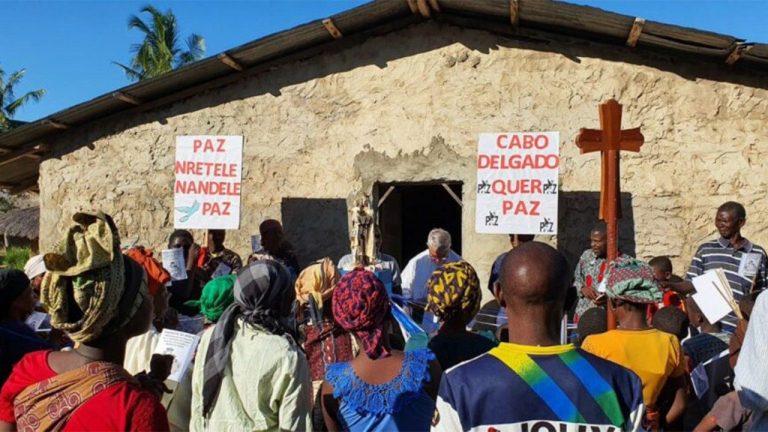New attacks by jihadist insurgents in the northern province of Cabo Delgado are forcing priests, nuns and other church members to flee to towns already overwhelmed by internally displaced people ( PDIP).
By Lisa Zengarini
After a period of relative calm, following the deployment of the Mozambique Armed Defense Forces (FADM), then the forces of the Southern African Development Community (SADC), the insurgency led by the Islamic State (Daesh) recently resumed in the Mozambican province of Cabo Delgado. .
Since the start of 2024, the northern province, where the insurgency broke out in 2017 and then spread to neighboring provinces, has experienced a new upsurge in attacks.
Local sources told Catholic charity Aid to the Church in Need (AED) that the attacks also involved Christian communities forcing priests, nuns and other church workers to flee to towns already overwhelmed by internally displaced persons (IDPs).
Mission razed to ashes in Mazese
In the latest incident, the church and offices of the Notre-Dame d’Afrique mission in Mazeze, Pemba diocese, were burned following a February 12 terrorist attack on the port town, which serves from capital to province.
As reported Aci Africa Agency, The parish priest confirmed the attack in an interview with Radio Pax of the Catholic Archdiocese of Beira, adding that no casualties were recorded. The only thing he managed to save from the fire, he said, was the Blessed Sacrament and the books of sacraments, baptisms and marriages that he had brought with him.
Houses and churches destroyed on February 9
The ACN was informed that three days earlier, on February 9, terrorists had also destroyed houses and churches in several villages in the province.
According to local sources, insurgents mostly do not discriminate between Muslims and Christians, but there have been attacks on specifically Christian communities – including cases where they have separated people by religion and executed Christians.
A million displaced by the conflict
The conflict in Mozambique has left more than 4,000 dead and, according to the United Nations High Commissioner for Refugees (UNHCR), around one million people have been displaced in the region, or three percent of the total population, leaving the rural areas to settle in crowded cities. A priest told ACN that Church staff follow them because people feel safer with their priests and religious.
Support from the Church
The Catholic Church supports displaced people in Mozambique while trying to facilitate a peaceful resolution to the conflict. ACN support in Mozambique includes pastoral assistance and counseling for victims of terrorism, vehicles for missionaries and the construction of community centers.
Pope Francis drew attention to the re-emergence of the crisis in Mozambique during the Angelus on Sunday, February 18: “Let us pray that peace returns to this tormented region,” he said.
Decrease in attacks in 2023
The decline in the number of insurgent attacks in northern Mozambique in 2023 had led international observers to cautious optimism.
According to the Mozambican army, by mid-December, security had been restored to 90% of the territory of Cabo Delgado.
Several independent experts had, however, warned that the jihadists, far from being definitively defeated, had only temporarily reduced their attacks, but were ready to strike again as soon as the SADC began to withdraw its contingent. The withdrawal process is expected to be completed by July 2025.
Furthermore, in their new attacks, the insurgents adopted a new strategy to befriend the population, as reported by local residents cited by Agenzia Fides: rather than killing civilians, they tax them, thereby preserving their lives and property, while Muslims are encouraged to stay and invited to join them in community prayer on Fridays.
Despite these uncertainties, French oil company TotalEnergies announced that it was considering resuming construction of its €20 billion liquefied natural gas (LNG) plant in the region, suspended in April 2021, after receiving the green light from the Mozambican president. Filipe Nyusi, who assured that it was possible to restart the project safely.


